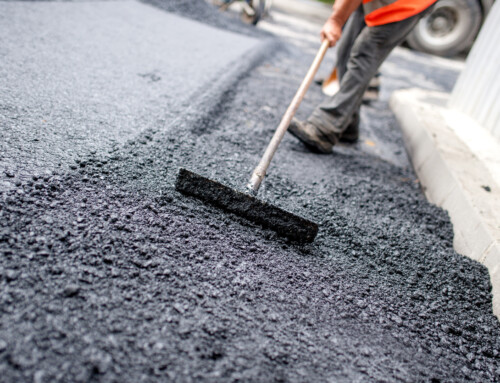
Let us peel back the mystery of asphalt and uncover its durability and versatility. We will learn its composition, starting with rocks and progressing to the final product that paves our roads. The extraction of raw materials begins the process that creates the asphalt that enables our transportation network.
This uncelebrated material is the hidden hero that facilitates our movement. Keep reading to learn more.
The Composition of Asphalt
At first glance, asphalt appears to be nothing more than a mundane black material. However, its composition is far more intricate than its dull exterior would suggest. Asphalt consists primarily of three key ingredients that work in harmony to create a robust and adaptable substance capable of withstanding vehicular traffic.
The backbone of asphalt is formed by aggregates, which make up the bulk of the mixture. Aggregates refer to the combination of rocks, minerals, and other sturdy materials that provide strength and stability. The specific aggregates used can vary in dimension, form, and makeup depending on the desired attributes of the final asphalt product. Common sources of aggregates include crushed stone, sand, gravel, and slag.
Binding the aggregates together is a petroleum-derived adhesive called bitumen, also known as asphalt cement. Bitumen gives asphalt its iconic black coloration. This thick, sticky substance oozes from oil refineries and boasts unmatched binding capabilities. When blended with aggregates, bitumen envelops the particles to produce a cohesive compound that can be molded and compressed into road surfaces.
Finally, fillers occupy the spaces between aggregates to enhance the performance of the asphalt. Fillers usually consist of fine particles like limestone dust, fly ash, or hydrated lime. They improve the workability and long-term durability of asphalt by making it more resistant to cracking and deformation from vehicular loads. The combination of aggregates, bitumen, and fillers creates a robust paving material critical to modern transportation infrastructure.
Different Types of Asphalt Additives and Their Functions
Beyond its primary ingredients, various additives can be incorporated into asphalt to enhance properties and address challenges. These additives improve performance, durability and sustainability.
Polymer additives boost flexibility and durability. They modify the binder, enhancing resistance to cracking and deformation. Polymer-modified asphalt also better withstands aging and temperature changes.
Fibers reinforce asphalt, increasing tensile strength and crack resistance. Fiber-reinforced asphalt performs well under heavy loads and truck traffic.
Warm mix additives lower production and placement temperatures, reducing energy use, emissions, and thermal damage. They also improve workability for easier construction and compaction.
Recycled asphalt pavement (RAP) conserves resources as a substitute for aggregates or binder modifiers. RAP provides similar performance to virgin materials while reducing environmental impact.
Asphalt Paving Services in Vancouver & Surrey
Asphalt is far more than a simple black road covering – it is a fascinating, complex material that is crucial to transportation systems. This composition of aggregates, binders, and fillers has been paving our way for centuries, providing smooth, safe driving surfaces.
If you want to learn more about our asphalt services, contact us at 604-755-0300 to schedule a free estimate.





